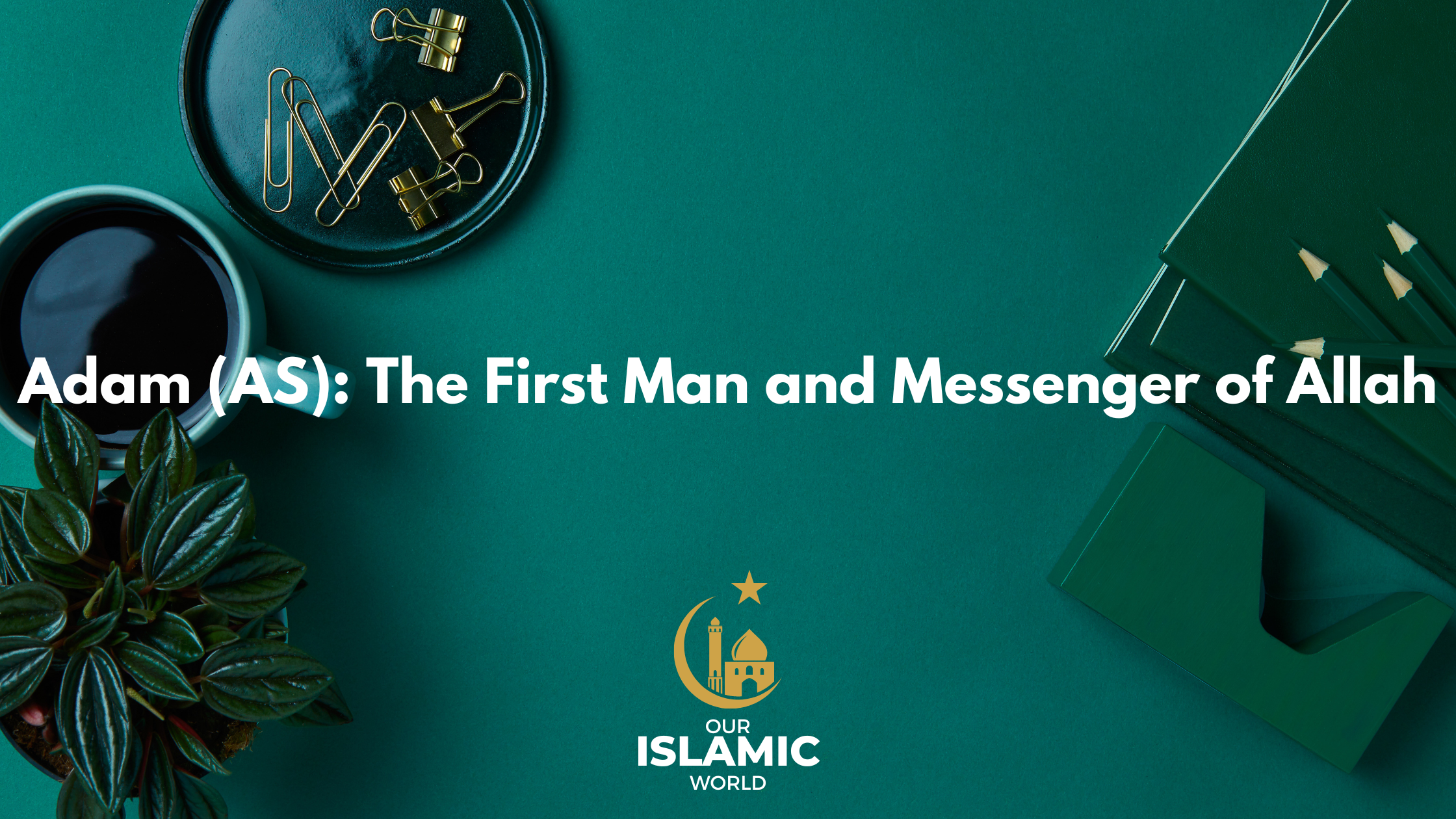
Adam (AS): The First Human & Prophet | The Beginning of Islamic Creation Story

Table of Contents
Introduction
The formation of Adam, the first prophet and human being is one of the cardinal principles of belief in Islam. His story, as expressed by the Holy Quran, besides being a literal pillar of Islamic theology, is charged with far-reaching implications for an explanation of human nature and man’s place within the universe. This paper tries to delve into the details of his creation story, the role assigned to him as the first prophet, and the lessons that lie within it for modern man.
Creation from Clay
Legend has it that Allah shaped Adam from clay. “We created man from clay from an altered black mud.” (Quran 15:26) The latter phrase describes the earthly source of man – the NATURE. The word – “altered black mud” — suggests minute artifice, and indeed, Allah is the artist.
The creation of Adam from clay is very symbolic. Clay has been used as a malleable substance to imply the potential and capacity to shape or mold. This goes very well with the Islamic paradigm of human beings with their free will and responsibility to mold their character through good actions.
In-Breathing God’s Spirit into Adam
Then, he blew life into the clay, and thus Adam was born. Again, one of the most outstanding moments in Islamic cosmology speaks about the origin of humankind. The Holy Quran says, “And when your Lord said to the angels, ‘Indeed I will create a human being from clay. And when I have formed him and blown into him of My spirit then fall down to him in prostration.'” (Quran 38:71-72)
The soul of Adam is generally equated with the soul. According to Islamic doctrine, the soul is considered as the very core of humanity representing man’s essence, his distinguishing factor from all of Allah’s other creations. Be that part of man wherein lay his consciousness, intellect, and spirituality.
Adam as the First Prophet
An important aspect of the story of Adam is his appointment as the first prophet because he was favored by Allah with knowledge and wisdom; therefore, he was a guide to humanity. In this regard, as a creation, he—being the first human being—was most appropriately placed to carry divine messages and teachings to the succeeding people from his line of descent. Since there is little information concerning Adams’s prophethood in the Quran, it is supplemented through more readily available narratives and interpretations from the Islamic traditions.
One of the essentialist aspects of Adam is the philosophy of prophethood, including the meaning and the purpose of prophethood in the Islamic system of belief, including what prophethood in Adam translates to in terms of a role as a prophet for humanity to provide eternal divine guidance. Since his story forms a framework for this ongoing chain of prophets, it ends in Prophet Muhammad (PBUH) as the last messenger.
Before sending the man to Earth, he was kept in Paradise (Jannah); this is where he was kept by Allah—in a place full of mortality, happiness, and abundance. Then came the testing area in regard to being an obedient and free-will man from Allah; Allah ordered Adam and his wife to live wherever they wanted in Paradise and enjoy its endless bounty except for one tree.
One of the key features of the Islamic narrative is the story of the rebellion by Adam and Eve against Allah’s will. Man’s fallibility and, together with it, the preference for disobedience over obedience, has been epitomized in the expulsion of Adam and Eve from Paradise and the incarnation of human existence on Earth with all its miseries and sufferings.
The Fall to Earth and the Road of Repentance
According to the Holy Quran, Adam and Eve were sent down to earth as a punishment for the act of their disobedience. This marked a new beginning of human history with all tests that the life on earth would present. However, this story doesn’t end at the point of expulsion. Instead, it is carried further on through emphasis on repentance and asking forgiveness from Allah.
The story of Adam only shows a reality: human beings are failures, weak. Clearly, it was shown that one would eventually turn to ask Allah for forgiveness and straighten his life path.
Adam’s Lineage: A Message Throughout Time
The story of Adam continues to resound among the Muslims. In his creation and prophethood, deep insight into human nature, the divine plan, and the meanings of life have been revealed through experience. Adam, as the first man, connotes the totality of human experience—in victories and challenges.
The legacy left behind by Adamian testifies to the efficacy of Belief, Repentance, and Redemptive Hope. His story inspires Muslims to the highest ends of Spirituality, seeking Knowledge, and fulfilling the vicegerency of Allah upon Earth.
Conclusion
The story of the creation of Adam is very central to the basic saga of Islam and part of other theological symbols. His story exemplifies creation, prophethood, free will, disobedience, and redemption. Through the experience of Adam, Muslims can be deeply enlightened regarding the meaning of their existence in the overall divine plan and living life according to the guidance of Allah.

